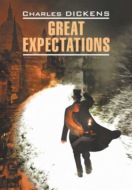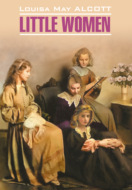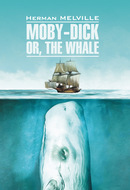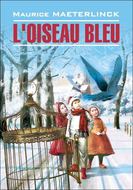Kitabı oku: «The Haunting of Bly Manor / Призраки усадьбы Блай. Книга для чтения на английском языке», sayfa 2
II
This came home to me26 when, two days later, I drove over with Flora to meet, as Mrs. Grose said, the little gentleman; and all the more for an incident that, presenting itself the second evening, had deeply disconcerted me. The first day had been, on the whole, as I have expressed, reassuring; but I was to see it wind up in keen apprehension. The postbag, that evening—it came late—contained a letter for me, which, however, in the hand of my employer, I found to be composed but of a few words enclosing another, addressed to himself, with a seal still unbroken. “This, I recognize, is from the headmaster, and the headmaster’s an awful bore. Read him, please; deal with him; but mind you don’t report. Not a word. I’m off!” I broke the seal with a great effort—so great a one that I was a long time coming to it; took the unopened missive at last up to my room and only attacked it just before going to bed. I had better have let it wait till morning, for it gave me a second sleepless night. With no counsel to take, the next day, I was full of distress; and it finally got so the better of me that I determined to open myself at least to Mrs. Grose.
“What does it mean? The child’s dismissed his school.”
She gave me a look that I remarked at the moment; then, visibly, with a quick blankness, seemed to try to take it back. “But aren’t they all—?”
“Sent home—yes. But only for the holidays. Miles may never go back at all.”
Consciously, under my attention, she reddened. “They won’t take him?”
“They absolutely decline.”
At this she raised her eyes, which she had turned from me; I saw them fill with good tears. “What has he done?”
I hesitated; then I judged best simply to hand her my letter—which, however, had the effect of making her, without taking it, simply put her hands behind her. She shook her head sadly. “Such things are not for me, miss.”
My counselor couldn’t read! I winced at my mistake, which I attenuated as I could, and opened my letter again to repeat it to her; then, faltering in the act and folding it up once more, I put it back in my pocket. “Is he really bad?”
The tears were still in her eyes. “Do the gentlemen say so?”
“They go into no particulars.27 They simply express their regret that it should be impossible to keep him. That can have only one meaning.” Mrs. Grose listened with dumb emotion; she forbore to ask me what this meaning might be; so that, presently, to put the thing with some coherence and with the mere aid of her presence to my own mind, I went on: “That he’s an injury to the others.”
At this, with one of the quick turns of simple folk, she suddenly flamed up. “Master Miles! him an injury?”
There was such a flood of good faith in it that, though I had not yet seen the child, my very fears made me jump to the absurdity of the idea. I found myself, to meet my friend the better, offering it, on the spot, sarcastically. “To his poor little innocent mates!”
“It’s too dreadful,” cried Mrs. Grose, “to say such cruel things! Why, he’s scarce28 ten years old.”
“Yes, yes; it would be incredible.”
She was evidently grateful for such a profession.29 “See him, miss, first. Then believe it!” I felt forthwith a new impatience to see him; it was the beginning of a curiosity that, for all the next hours, was to deepen almost to pain. Mrs. Grose was aware, I could judge, of what she had produced in me, and she followed it up with assurance. “You might as well believe it of the little lady. Bless her,” she added the next moment—“look at her!”
I turned and saw that Flora, whom, ten minutes before, I had established in the schoolroom with a sheet of white paper, a pencil, and a copy of nice “round O’s,” now presented herself to view at the open door. She expressed in her little way an extraordinary detachment from disagreeable duties, looking to me, however, with a great childish light that seemed to offer it as a mere result of the affection she had conceived for my person, which had rendered necessary that she should follow me. I needed nothing more than this to feel the full force of Mrs. Grose’s comparison, and, catching my pupil in my arms, covered her with kisses in which there was a sob of atonement.
Nonetheless, the rest of the day I watched for further occasion to approach my colleague, especially as, toward evening, I began to fancy she rather sought to avoid me. I overtook her, I remember, on the staircase; we went down together, and at the bottom I detained her, holding her there with a hand on her arm. “I take what you said to me at noon as a declaration that you’ve never known him to be bad.”
She threw back her head; she had clearly, by this time, and very honestly, adopted an attitude. “Oh, never known him—I don’t pretend that!”
I was upset again. “Then you have known him—?”
“Yes indeed, miss, thank God!”
On reflection I accepted this. “You mean that a boy who never is—?”
“Is no boy for me!”
I held her tighter. “You like them with the spirit to be naughty?” Then, keeping pace with her answer, “So do I!” I eagerly brought out. “But not to the degree to contaminate—”
“To contaminate?”—my big word left her at a loss.30 I explained it. “To corrupt.”
She stared, taking my meaning in; but it produced in her an odd laugh. “Are you afraid he’ll corrupt you?” She put the question with such a fine bold humor that, with a laugh, a little silly doubtless, to match her own, I gave way for the time to the apprehension of ridicule.
But the next day, as the hour for my drive approached, I cropped up in another place. “What was the lady who was here before?”
“The last governess? She was also young and pretty—almost as young and almost as pretty, miss, even as you.”
“Ah, then, I hope her youth and her beauty helped her!” I recollect throwing off. “He seems to like us young and pretty!”
“Oh, he did,” Mrs. Grose assented: “it was the way he liked everyone!” She had no sooner spoken indeed than she caught herself up. “I mean that’s his way—the master’s.”
I was struck. “But of whom did you speak first?”
She looked blank, but she colored. “Why, of him”
“Of the master?”
“Of who else?”
There was so obviously no one else that the next moment I had lost my impression of her having accidentally said more than she meant; and I merely asked what I wanted to know. “Did she see anything in the boy—?”
“That wasn’t right? She never told me.”
I had a scruple, but I overcame it. “Was she careful—particular?”
Mrs. Grose appeared to try to be conscientious. “About some things—yes.”
“But not about all?”
Again she considered. “Well, miss—she’s gone. I won’t tell tales.”31
“I quite understand your feeling,” I hastened to reply; but I thought it, after an instant, not opposed to this concession to pursue: “Did she die here?”
“No—she went off.”
I don’t know what there was in this brevity of Mrs. Grose’s that struck me as ambiguous. “Went off to die?” Mrs. Grose looked straight out of the window, but I felt that, hypothetically, I had a right to know what young persons engaged for Bly were expected to do. “She was taken ill, you mean, and went home?”
“She was not taken ill, so far as appeared, in this house. She left it, at the end of the year, to go home, as she said, for a short holiday, to which the time she had put in had certainly given her a right. We had then a young woman—a nursemaid who had stayed on and who was a good girl and clever; and she took the children altogether for the interval. But our young lady never came back, and at the very moment I was expecting her I heard from the master that she was dead.”
I turned this over. “But of what?”
“He never told me! But please, miss,” said Mrs. Grose, “I must get to my work.”
III
Her thus turning her back on me was fortunately not, for my just preoccupations, a snub that could check the growth of our mutual esteem. We met, after I had brought home little Miles, more intimately than ever on the ground of my stupefaction, my general emotion: so monstrous was I then ready to pronounce it that such a child as had now been revealed to me should be under an interdict. I was a little late on the scene, and I felt, as he stood wistfully looking out for me before the door of the inn at which the coach had put him down, that I had seen him, on the instant, without and within, in the great glow of freshness, the same positive fragrance of purity, in which I had, from the first moment, seen his little sister. He was incredibly beautiful, and Mrs. Grose had put her finger on it: everything but a sort of passion of tenderness for him was swept away by his presence. What I then and there took him to my heart for was something divine that I have never found to the same degree in any child—his indescribable little air of knowing nothing in the world but love. It would have been impossible to carry a bad name with a greater sweetness of innocence, and by the time I had got back to Bly with him I remained merely bewildered—so far, that is, as I was not outraged—by the sense of the horrible letter locked up in my room, in a drawer. As soon as I could compass a private word with Mrs. Grose I declared to her that it was grotesque.
She promptly understood me. “You mean the cruel charge—?”
“It doesn’t live an instant.32 My dear woman, look at him!”
She smiled at my pretention to have discovered his charm. “I assure you, miss, I do nothing else! What will you say, then?” she immediately added.
“In answer to the letter?” I had made up my mind. “Nothing.”
“And to his uncle?”
I was incisive. “Nothing.”
“And to the boy himself?”
I was wonderful. “Nothing.”
She gave with her apron a great wipe to her mouth. “Then I’ll stand by you. We’ll see it out.”33
“We’ll see it out!” I ardently echoed, giving her my hand to make it a vow.
She held me there a moment, then whisked up her apron again with her detached hand. “Would you mind, miss, if I used the freedom—”
“To kiss me? No!” I took the good creature in my arms and, after we had embraced like sisters, felt still more fortified and indignant.
This, at all events, was for the time: a time so full that, as I recall the way it went, it reminds me of all the art I now need to make it a little distinct. What I look back at with amazement is the situation I accepted. I had undertaken, with my companion, to see it out, and I was under a charm, apparently, that could smooth away the extent and the far and difficult connections of such an effort. I was lifted aloft on a great wave of infatuation and pity. I found it simple, in my ignorance, my confusion, and perhaps my conceit, to assume that I could deal with a boy whose education for the world was all on the point of beginning. I am unable even to remember at this day what proposal I framed for the end of his holidays and the resumption of his studies. Lessons with me, indeed, that charming summer, we all had a theory that he was to have; but I now feel that, for weeks, the lessons must have been rather my own. I learned something—at first, certainly—that had not been one of the teachings of my small, smothered life; learned to be amused, and even amusing, and not to think for the morrow.34 It was the first time, in a manner, that I had known space and air and freedom, all the music of summer and all the mystery of nature. And then there was consideration—and consideration was sweet. Oh, it was a trap—not designed, but deep—to my imagination, to my delicacy, perhaps to my vanity; to whatever, in me, was most excitable. The best way to picture it all is to say that I was off my guard. They gave me so little trouble—they were of a gentleness so extraordinary. I used to speculate—but even this with a dim disconnectedness—as to how the rough future (for all futures are rough!) would handle them and might bruise them. They had the bloom of health and happiness; and yet, as if I had been in charge of a pair of little grandees, of princes of the blood, for whom everything, to be right, would have to be enclosed and protected, the only form that, in my fancy, the afteryears could take for them was that of a romantic, a really royal extension of the garden and the park. It may be, of course, above all, that what suddenly broke into this gives the previous time a charm of stillness—that hush in which something gathers or crouches. The change was actually like the spring of a beast.35
In the first weeks the days were long; they often, at their finest, gave me what I used to call my own hour, the hour when, for my pupils, teatime and bedtime having come and gone, I had, before my final retirement, a small interval alone. Much as I liked my companions, this hour was the thing in the day I liked most; and I liked it best of all when, as the light faded—or rather, I should say, the day lingered and the last calls of the last birds sounded, in a flushed sky, from the old trees—I could take a turn into the grounds and enjoy, almost with a sense of property that amused and flattered me, the beauty and dignity of the place. It was a pleasure at these moments to feel myself tranquil and justified; doubtless, perhaps, also to reflect that by my discretion, my quiet good sense and general high propriety, I was giving pleasure—if he ever thought of it!—to the person to whose pressure I had responded. What I was doing was what he had earnestly hoped and directly asked of me, and that I could, after all, do it proved even a greater joy than I had expected. I daresay I fancied myself, in short, a remarkable young woman and took comfort in the faith that this would more publicly appear. Well, I needed to be remarkable to offer a front to the remarkable things that presently gave their first sign.
It was plump, one afternoon, in the middle of my very hour: the children were tucked away, and I had come out for my stroll. One of the thoughts that, as I don’t in the least shrink now from noting, used to be with me in these wanderings was that it would be as charming as a charming story suddenly to meet someone. Someone would appear there at the turn of a path and would stand before me and smile and approve. I didn’t ask more than that—I only asked that he should know; and the only way to be sure he knew would be to see it, and the kind light of it, in his handsome face. That was exactly present to me—by which I mean the face was—when, on the first of these occasions, at the end of a long June day, I stopped short on emerging from one of the plantations and coming into view of the house. What arrested me on the spot—and with a shock much greater than any vision had allowed for—was the sense that my imagination had, in a flash, turned real. He did stand there!—but high up, beyond the lawn and at the very top of the tower to which, on that first morning, little Flora had conducted me. This tower was one of a pair—square, incongruous, crenelated structures—that were distinguished, for some reason, though I could see little difference, as the new and the old. They flanked opposite ends of the house and were probably architectural absurdities, redeemed in a measure indeed by not being wholly disengaged nor of a height too pretentious, dating, in their gingerbread antiquity, from a romantic revival that was already a respectable past. I admired them, had fancies about them, for we could all profit in a degree, especially when they loomed through the dusk, by the grandeur of their actual battlements; yet it was not at such an elevation that the figure I had so often invoked seemed most in place.
It produced in me, this figure, in the clear twilight, I remember, two distinct gasps of emotion, which were, sharply, the shock of my first and that of my second surprise. My second was a violent perception of the mistake of my first: the man who met my eyes was not the person I had precipitately supposed. There came to me thus a bewilderment of vision of which, after these years, there is no living view that I can hope to give. An unknown man in a lonely place is a permitted object of fear to a young woman privately bred; and the figure that faced me was—a few more seconds assured me—as little anyone else I knew as it was the image that had been in my mind. I had not seen it in Harley Street36—I had not seen it anywhere. The place, moreover, in the strangest way in the world, had, on the instant, and by the very fact of its appearance, become a solitude. To me at least, making my statement here with a deliberation with which I have never made it, the whole feeling of the moment returns. It was as if, while I took in—what I did take in—all the rest of the scene had been stricken with death.37 I can hear again, as I write, the intense hush in which the sounds of evening dropped. The rooks stopped cawing in the golden sky, and the friendly hour lost, for the minute, all its voice. But there was no other change in nature, unless indeed it were a change that I saw with a stranger sharpness. The gold was still in the sky, the clearness in the air, and the man who looked at me over the battlements was as definite as a picture in a frame. That’s how I thought, with extraordinary quickness, of each person that he might have been and that he was not. We were confronted across our distance quite long enough for me to ask myself with intensity who then he was and to feel, as an effect of my inability to say, a wonder that in a few instants more became intense.
The great question, or one of these, is, afterward, I know, with regard to certain matters, the question of how long they have lasted. Well, this matter of mine, think what you will of it, lasted while I caught at a dozen possibilities, none of which made a difference for the better, that I could see, in there having been in the house—and for how long, above all?—a person of whom I was in ignorance. It lasted while I just bridled a little with the sense that my office demanded that there should be no such ignorance and no such person. It lasted while this visitant, at all events—and there was a touch of the strange freedom, as I remember, in the sign of familiarity of his wearing no hat—seemed to fix me, from his position, with just the question, just the scrutiny through the fading light, that his own presence provoked. We were too far apart to call to each other, but there was a moment at which, at shorter range, some challenge between us, breaking the hush, would have been the right result of our straight mutual stare. He was in one of the angles, the one away from the house, very erect, as it struck me, and with both hands on the ledge. So I saw him as I see the letters I form on this page; then, exactly, after a minute, as if to add to the spectacle, he slowly changed his place—passed, looking at me hard all the while,38 to the opposite corner of the platform. Yes, I had the sharpest sense that during this transit he never took his eyes from me, and I can see at this moment the way his hand, as he went, passed from one of the crenelations to the next. He stopped at the other corner, but less long, and even as he turned away still markedly fixed me. He turned away; that was all I knew.
IV
It was not that I didn’t wait, on this occasion, for more, for I was rooted as deeply as I was shaken. Was there a “secret” at Bly—a mystery of Udolpho39 or an insane, an unmentionable relative kept in unsuspected confinement?40 I can’t say how long I turned it over, or how long, in a confusion of curiosity and dread, I remained where I had had my collision; I only recall that when I re-entered the house darkness had quite closed in. Agitation, in the interval, certainly had held me and driven me, for I must, in circling about the place, have walked three miles; but I was to be, later on, so much more overwhelmed that this mere dawn of alarm was a comparatively human chill. The most singular part of it, in fact—singular as the rest had been—was the part I became, in the hall, aware of in meeting Mrs. Grose. This picture comes back to me in the general train—the impression, as I received it on my return, of the wide white panelled space, bright in the lamplight and with its portraits and red carpet, and of the good surprised look of my friend, which immediately told me she had missed me. It came to me straightway, under her contact, that, with plain heartiness, mere relieved anxiety at my appearance, she knew nothing whatever that could bear upon the incident I had there ready for her. I had not suspected in advance that her comfortable face would pull me up, and I somehow measured the importance of what I had seen by my thus finding myself hesitate to mention it. Scarce anything in the whole history seems to me so odd as this fact that my real beginning of fear was one, as I may say, with the instinct of sparing my companion. On the spot, accordingly, in the pleasant hall and with her eyes on me, I, for a reason that I couldn’t then have phrased, achieved an inward resolution—offered a vague pretext for my lateness and, with the plea of the beauty of the night and of the heavy dew and wet feet, went as soon as possible to my room.
Here it was another affair; here, for many days after, it was a queer affair enough. There were hours, from day to day—or at least there were moments, snatched even from clear duties—when I had to shut myself up to think. It was not so much yet that I was more nervous than I could bear to be as that I was remarkably afraid of becoming so; for the truth I had now to turn over was, simply and clearly, the truth that I could arrive at no account whatever of the visitor with whom I had been so inexplicably and yet, as it seemed to me, so intimately concerned. It took little time to see that I could sound without forms of inquiry and without exciting remark any domestic complications. The shock I had suffered must have sharpened all my senses; I felt sure, at the end of three days and as the result of mere closer attention, that I had not been practiced upon by the servants nor made the object of any “game.”41 Of whatever it was that I knew, nothing was known around me. There was but one sane inference: someone had taken a liberty rather gross. That was what, repeatedly, I dipped into my room and locked the door to say to myself. We had been, collectively, subject to an intrusion;42 some unscrupulous traveler, curious in old houses, had made his way in unobserved, enjoyed the prospect from the best point of view, and then stolen out as he came. If he had given me such a bold hard stare, that was but a part of his indiscretion. The good thing, after all, was that we should surely see no more of him.
This was not so good a thing, I admit, as not to leave me to judge that what, essentially, made nothing else much signify was simply my charming work. My charming work was just my life with Miles and Flora, and through nothing could I so like it as through feeling that I could throw myself into it in trouble. The attraction of my small charges was a constant joy, leading me to wonder afresh at the vanity of my original fears, the distaste I had begun by entertaining for the probable gray prose of my office. There was to be no gray prose, it appeared, and no long grind; so how could work not be charming that presented itself as daily beauty? It was all the romance of the nursery and the poetry of the schoolroom. I don’t mean by this, of course, that we studied only fiction and verse; I mean I can express no otherwise the sort of interest my companions inspired. How can I describe that except by saying that instead of growing used to them—and it’s a marvel for a governess: I call the sisterhood to witness!—I made constant fresh discoveries. There was one direction, assuredly, in which these discoveries stopped: deep obscurity continued to cover the region of the boy’s conduct at school. It had been promptly given me, I have noted, to face that mystery without a pang. Perhaps even it would be nearer the truth to say that—without a word—he himself had cleared it up. He had made the whole charge absurd. My conclusion bloomed there with the real rose flush of his innocence: he was only too fine and fair for the little horrid, unclean school-world, and he had paid a price for it. I reflected acutely that the sense of such differences, such superiorities of quality, always, on the part of the majority—which could include even stupid, sordid headmasters—turn infallibly to the vindictive.
Both the children had a gentleness (it was their only fault, and it never made Miles a muff) that kept them—how shall I express it?—almost impersonal and certainly quite unpunishable. They were like the cherubs of the anecdote, who had—morally, at any rate—nothing to whack!43 I remember feeling with Miles in especial as if he had had, as it were, no history. We expect of a small child a scant one, but there was in this beautiful little boy something extraordinarily sensitive, yet extraordinarily happy, that, more than in any creature of his age I have seen, struck me as beginning anew each day. He had never for a second suffered. I took this as a direct disproof of his having really been chastised. If he had been wicked he would have “caught” it, and I should have caught it by the rebound—I should have found the trace. I found nothing at all, and he was therefore an angel. He never spoke of his school, never mentioned a comrade or a master; and I, for my part, was quite too much disgusted to allude to them. Of course I was under the spell, and the wonderful part is that, even at the time, I perfectly knew I was. But I gave myself up to it; it was an antidote to any pain, and I had more pains than one. I was in receipt in these days of disturbing letters from home, where things were not going well. But with my children, what things in the world mattered? That was the question I used to put to my scrappy retirements. I was dazzled by their loveliness.
There was a Sunday—to get on—when it rained with such force and for so many hours that there could be no procession to church; in consequence of which, as the day declined, I had arranged with Mrs. Grose that, should the evening show improvement, we would attend together the late service. The rain happily stopped, and I prepared for our walk, which, through the park and by the good road to the village, would be a matter of twenty minutes. Coming downstairs to meet my colleague in the hall, I remembered a pair of gloves that had required three stitches and that had received them—with a publicity perhaps not edifying—while I sat with the children at their tea, served on Sundays, by exception, in that cold, clean temple of mahogany and brass, the “grown-up” dining room. The gloves had been dropped there, and I turned in to recover them. The day was gray enough, but the afternoon light still lingered, and it enabled me, on crossing the threshold, not only to recognize, on a chair near the wide window, then closed, the articles I wanted, but to become aware of a person on the other side of the window and looking straight in. One step into the room had sufficed; my vision was instantaneous; it was all there. The person looking straight in was the person who had already appeared to me. He appeared thus again with I won’t say greater distinctness, for that was impossible, but with a nearness that represented a forward stride in our intercourse and made me, as I met him, catch my breath and turn cold. He was the same—he was the same, and seen, this time, as he had been seen before, from the waist up, the window, though the dining room was on the ground floor, not going down to the terrace on which he stood. His face was close to the glass, yet the effect of this better view was, strangely, only to show me how intense the former had been. He remained but a few seconds—long enough to convince me he also saw and recognized; but it was as if I had been looking at him for years and had known him always. Something, however, happened this time that had not happened before; his stare into my face, through the glass and across the room, was as deep and hard as then, but it quitted me for a moment during which I could still watch it, see it fix successively several other things.44 On the spot there came to me the added shock of a certitude that it was not for me he had come there. He had come for someone else.
The flash of this knowledge—for it was knowledge in the midst of dread—produced in me the most extraordinary effect, started as I stood there, a sudden vibration of duty and courage. I say courage because I was beyond all doubt already far gone. I bounded straight out of the door again, reached that of the house, got, in an instant, upon the drive, and, passing along the terrace as fast as I could rush, turned a corner and came full in sight. But it was in sight of nothing now—my visitor had vanished. I stopped, I almost dropped, with the real relief of this; but I took in the whole scene—I gave him time to reappear. I call it time, but how long was it? I can’t speak to the purpose today of the duration of these things. That kind of measure must have left me: they couldn’t have lasted as they actually appeared to me to last. The terrace and the whole place, the lawn and the garden beyond it, all I could see of the park, were empty with a great emptiness. There were shrubberies and big trees, but I remember the clear assurance I felt that none of them concealed him. He was there or was not there: not there if I didn’t see him. I got hold of this; then, instinctively, instead of returning as I had come, went to the window. It was confusedly present to me that I ought to place myself where he had stood. I did so; I applied my face to the pane and looked, as he had looked, into the room. As if, at this moment, to show me exactly what his range had been, Mrs. Grose, as I had done for himself just before, came in from the hall. With this I had the full image of a repetition of what had already occurred. She saw me as I had seen my own visitant; she pulled up short45 as I had done; I gave her something of the shock that I had received. She turned white, and this made me ask myself if I had blanched as much. She stared, in short, and retreated on just my lines, and I knew she had then passed out and come round to me and that I should presently meet her. I remained where I was, and while I waited I thought of more things than one. But there’s only one I take space to mention. I wondered why she should be scared.








